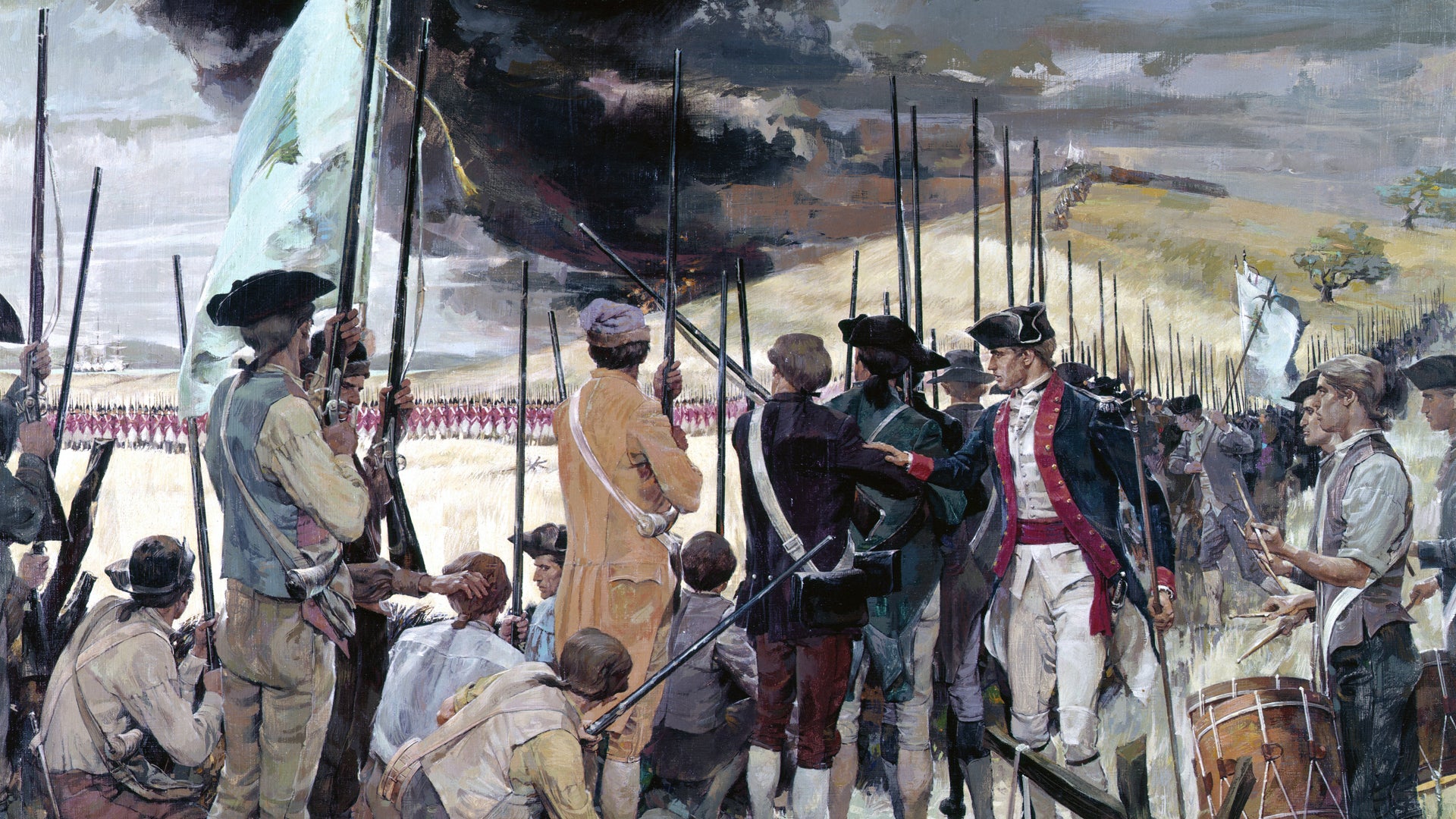Welcome to Facts Vibes, where we uncover fascinating historical insights! In this article, we delve into the 10 intriguing facts about the pivotal Battle of Lexington and Concord. Join us as we explore the lesser-known details of this critical event in American history.
The Untold Stories: Uncovering 10 Fascinating Facts of the Battle of Lexington and Concord
The Battle of Lexington and Concord was a pivotal event in the American Revolutionary War, and it is filled with captivating details that shed light on the early stages of the conflict. Here are 10 fascinating facts that provide a deeper understanding of this historic encounter.
1. Paul Revere’s Ride: Before the battle, Paul Revere made his famous midnight ride to warn the colonial militias of the approaching British troops, shouting “The British are coming!”
2. First Shots Fired: The first shots of the Revolutionary War were fired at Lexington Green on April 19, 1775, marking the beginning of the conflict between the American colonists and the British forces.
3. Minutemen: The colonists who fought in the battle were known as minutemen, so named because they were ready to assemble and fight at a minute’s notice.
4. British Retreat: After the initial clash at Lexington, the British troops marched on to Concord but were met with fierce resistance from the colonists, forcing them to retreat back to Boston.
5. Sniper Warfare: As the British made their way back to Boston, they were relentlessly targeted by colonial snipers who inflicted significant casualties upon them.
6. Role of Women: Women played a crucial role in the battle, providing support to the militia by delivering supplies and tending to the wounded.
7. Strategic Errors: The British forces faced difficulties due to strategic errors, such as underestimating the resolve and strength of the colonial militias.
8. Start of a Revolution: The events at Lexington and Concord marked a turning point in the struggle for independence, galvanizing the colonists’ determination to break free from British rule.
9. International Impact: News of the battle spread rapidly, shaping international perceptions and garnering support for the American cause from countries such as France and Spain.
10. Legacies of Liberty: The bravery and defiance displayed by the colonists in the face of British oppression left a lasting legacy, inspiring future generations in their fight for liberty and self-governance.
These fascinating facts offer a glimpse into the complexities and human stories that define the Battle of Lexington and Concord, underscoring its significance in shaping the course of history.
Most popular facts
The Battle of Lexington and Concord took place on April 19, 1775, in Massachusetts.
The Battle of Lexington and Concord took place on April 19, 1775, in Massachusetts.
It marked the first military engagements of the American Revolutionary War.
The battles of Lexington and Concord marked the first military engagements of the American Revolutionary War.
The battles were sparked by British attempts to seize and destroy colonial weapons and ammunition stockpiles.
The battles were sparked by British attempts to seize and destroy colonial weapons and ammunition stockpiles.
The conflict began with the “shot heard round the world” at Lexington Green.
The conflict began with the “shot heard round the world” at Lexington Green.
The outnumbered colonial militia dispersed at Lexington, but regrouped and fought at Concord.
The outnumbered colonial militia dispersed at Lexington, but regrouped and fought at Concord.
The battles resulted in heavy casualties for the British troops.
The battles resulted in heavy casualties for the British troops.
Both sides claimed victory in their respective accounts of the battles.
Both sides claimed victory in their respective accounts of the battles.
The events of Lexington and Concord propelled the colonies towards war with Britain.
Yes, the events of Lexington and Concord propelled the colonies towards war with Britain.
The battles inspired patriotic fervor and rallied more colonists to support the cause of independence.
The battles inspired patriotic fervor and rallied more colonists to support the cause of independence.
Paul Revere’s famous midnight ride warned the colonists of the approaching British forces.
Paul Revere’s famous midnight ride warned the colonists of the approaching British forces.
The battles of Lexington and Concord are commemorated annually as Patriots’ Day in Massachusetts.
Yes, the battles of Lexington and Concord are commemorated annually as Patriots’ Day in Massachusetts.
The “shot heard round the world” has become a symbol of the start of the American Revolution.
The “shot heard round the world” has become a symbol of the start of the American Revolution.
The battles of Lexington and Concord galvanized colonial unity against British oppression.
The battles of Lexington and Concord galvanized colonial unity against British oppression.
The conflict highlighted the growing tension and animosity between the colonies and the British government.
The conflict highlighted the growing tension and animosity between the colonies and the British government.
The events of Lexington and Concord set the stage for the formal declaration of independence in
The events of Lexington and Concord set the stage for the formal declaration of independence.
In conclusion, the Battle of Lexington and Concord was a pivotal event in the American Revolutionary War, marking the beginning of the fight for independence. From the “shot heard ’round the world” to the strategic maneuvering of Paul Revere, these 10 fascinating facts shed light on the bravery, tactics, and significance of this historic conflict. The legacy of Lexington and Concord continues to inspire and captivate, serving as a reminder of the courage and determination that shaped the birth of a new nation.
